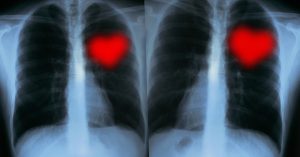Are People With Heart Disease at a Greater Risk for Coronavirus?
Below, Dr. Sachin Diwadkar, FACC, FASE, the best heart doctor in Tampa Bay, answers this question and provides medical advice on how you can protect yourself from infection. In addition to the advice provided throughout this article, the best thing you can do for your heart health is to remain calm, stay informed, and monitor your condition. For any questions or concerns regarding the coronavirus and your health, please don’t hesitate to contact your medical provider at Ascent Cardiology Group.
Related: Staying Active With Heart Disease
Wash your hands: It’s believed that the coronavirus can survive for as long as three days on some surfaces. Wash your hands often with soap and water for at least 20 seconds and clean frequently touched surfaces often with disinfectant.
Practice social distancing: Although there is still debate on how exactly the virus is spread, it is known that it spreads mainly from person-to-person. Avoid group gatherings and stay indoors as much as possible.
Take your medications: Continue taking your medications as prescribed. Reach out to your heart doctor in Tampa Bay if you have less than a 30 day supply.
Related: Understanding the Signs of Congestive Heart Failure
At Ascent Cardiology Group, we know that this is a difficult and stressful time for our patients. Although there’s still a lot that we still don’t know about the coronavirus, the situation can only improve as the virus is studied, treated, and eventually cured. The professionals at Ascent Cardiology Group will always be here to help you in any way we can.
The content, views, and opinions communicated on this website do not represent the views of Ascent Cardiology Group. Reliance on any information provided by this website is solely at your own risk. Although this website contains links to other medical websites, this is strictly for informational purposes. Ascent Cardiology Group is not responsible nor do they approve of the content featured on any third party linked websites referenced on this website.

Stress and Heart Disease: What You Can Do to Improve Your Heart Health
Working long hours, filling up free time, and taking on additional responsibilities is a way of life for Type A

What is Nuclear Cardiology?
Nuclear cardiology is a subspeciality of general cardiology that involves the use of radioactive substances and advanced medical imaging modalities

Coronary Heart Disease: What Is It and How Is It Treated?
In addition to being the most common type of heart disease, coronary heart disease is the deadliest. In fact, it’s
Everything You Need to Know About Stress Tests
During a stress test, a patient will be hooked up to electrocardiogram (ECG) monitors that measure the rhythm of their heart. While the patient is exercising during a stress test, the cardiologist will assess the patient’s heart rate, breathing, blood pressure, energy level, whether or not they show signs of discomfort, and other factors related to their heart condition. A doctor may request additional heart-related tests to be performed in conjunction with a stress test, including imaging tests to help determine if there’s a heart condition.
Here are a few tips for patients that elect to participate in a stress test:
Prepping: generally, there are certain requirements patients need to follow in order to participate in a stress test, including avoiding caffeine for at least the day of the stress test. Consult a cardiologist to learn more about what you can eat and drink before undergoing a stress test and the expectations of the test.
Dress Right: Considering that a stress test requires up to 15 minutes of exercise, patients should dress comfortably in sweatpants, sneakers, and other forms of athletic apparel.
Communicate With Your Doctor: it’s critical that patients effectively communicate with their doctor before, during, and after a stress test.
Before a test, a patient should be completely transparent with their doctor about their medical history.
During a stress test, if you feel you are developing heart-related symptoms, notify your doctor and stop exercising immediately.
Final Things to Consider: Once the best cardiologist in Tampa has assessed your medical condition using an evidence-based approach, they will provide you with your results and a treatment plan. Depending on your heart care needs, a cardiologist may provide you with goals to improve your heart health, notify you of any risks, or provide you with alternative options to treat a heart condition.
The content, views, and opinions communicated on this website do not represent the views of Ascent Cardiology Group. Reliance on any information provided by this website is solely at your own risk. Although this website contains links to other medical websites, this is strictly for informational purposes. Ascent Cardiology Group is not responsible nor do they approve of the content featured on any third party linked websites referenced on this website.

Stress and Heart Disease: What You Can Do to Improve Your Heart Health
Working long hours, filling up free time, and taking on additional responsibilities is a way of life for Type A

What is Nuclear Cardiology?
Nuclear cardiology is a subspeciality of general cardiology that involves the use of radioactive substances and advanced medical imaging modalities

Coronary Heart Disease: What Is It and How Is It Treated?
In addition to being the most common type of heart disease, coronary heart disease is the deadliest. In fact, it’s